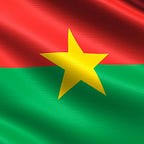Africa | News | History
Congo Kinshasa Coup Attempt — The Making of New Zaire
Sunday, 19 May 2024
By TB Obwoge
There was a coup attempt in the Democratic Republic of Congo earlier today.
A coup d’état (/ˌkuːdeɪˈtɑː/; French: [ku deta]; lit. ‘stroke of state’), or simply a coup, is typically an illegal and overt attempt by a military organization or other government elites to unseat an incumbent leadership.
There is a movement called the New Zaire movement, it is lead basicly by a man named Christian Malanga. Who happened to livestream several videos on his Facebook platform after several armed men took over the presidential palace in Congo Kinshasa.
A coup d’état (/ˌkuːdeɪˈtɑː/; French: [ku deta]; lit. ‘stroke of state’), or simply a coup, is typically an illegal and overt attempt by a military organization or other government elites to unseat an incumbent leadership.
“Counter-coup” and “Coup” redirect here. For the injury type, see Coup contrecoup injury. For other uses, see Coup (disambiguation) and Coup d’état (disambiguation).
General Napoleon Bonaparte during the Coup of 18 Brumaire in Saint-Cloud, detail of…
